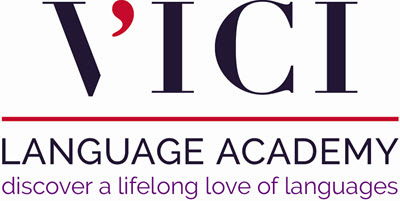 Here at the VICI Language Academy we are often asked this question by students: “I’m great at languages… what would be the best career choice?” Parents and teachers also ask questions like this too for their children and students.
Here at the VICI Language Academy we are often asked this question by students: “I’m great at languages… what would be the best career choice?” Parents and teachers also ask questions like this too for their children and students.
Often our students will say they want to teach the language they are good at and it is nice to think we our approach to teaching might have inspired them to want to do the same – and what a noble choice that would be!
However, speaking one or more foreign languages, opens more doors than teaching and ideally you should decide whether you want to use your languages in your career or to support your career – that is to say will you be speaking them all the time? Or will it be helping you occasionally?
Either way you have more choices if you speak another language well and the more complementary languages you speak then the more choices you have.
For example using the language everyday would be essential if you were and interpreter or if you were a translator. Within education you could indeed teach or support foreign students.
However the real opportunities come when you use language to support your career; that is where they are secondary to you primary skillset.
Here the world truly is the proverbial lobster for almost any career path you choose to follow will be more exciting and better paid if you can speak another language.
It could also be you simply work in another country where you speak the language like a local and therefore your skillset is transferable beyond these shores.
Recently we met a junior PA who had travelled to Paris with her firm because it turned out she was the only one who spoke English and we helped a managing director secure a job because he was prepared to learn Portuguese. Each week we discover yet again the competitive advantage a second, third or more languages can offer.
Indeed our sister company VICI Language Dynamics exists to serve businesses who are looking for workers with proven foreign language skills.
In a world where English no longer offers a competitive advantage it is the bi-lingual children of today who will be most successful tomorrow and whatever you choose to do, if you can do that in more than one language you will be more employable and command a higher salary than those who merely speak a single language.
